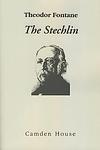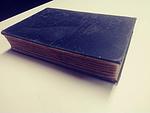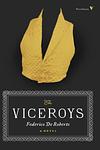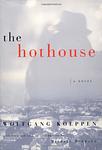The Greatest Italian, German "Social & Cultural Fiction" Books of All Time
Click to learn how this list is calculated.
This list represents a comprehensive and trusted collection of the greatest books. Developed through a specialized algorithm, it brings together 300 'best of' book lists to form a definitive guide to the world's most acclaimed books. For those interested in how these books are chosen, additional details can be found on the rankings page.
Genres
Social & Cultural Fiction is a literary category that encompasses novels and stories that delve into the complexities of society and culture, exploring themes such as class, race, gender, and identity within specific social contexts. These narratives often provide a lens through which readers can examine the intricacies of human relationships and the impact of cultural norms and societal structures on individuals and communities. By offering a fictional yet reflective portrayal of real-world social dynamics, this genre invites readers to gain a deeper understanding of the diverse experiences that shape our world. Authors in this category frequently use their characters and settings to comment on contemporary issues, challenge prevailing ideologies, and provoke thought about the possibility of social change, making Social & Cultural Fiction a powerful tool for empathy and a mirror for the ever-evolving human condition.
Countries
Date Range
Reading Statistics
Click the button below to see how many of these books you've read!
Download
If you're interested in downloading this list as a CSV file for use in a spreadsheet application, you can easily do so by clicking the button below. Please note that to ensure a manageable file size and faster download, the CSV will include details for only the first 500 books.
Download-
1. The Magic Mountain by Thomas Mann
In this novel, the protagonist, a young, ordinary man, visits his cousin at a tuberculosis sanatorium in the Swiss Alps. Intending to stay for only a few weeks, he ends up remaining there for seven years, becoming a patient himself. The book explores his experiences and relationships with other patients and staff, delving into philosophical discussions on life, time, and the nature of disease. It also provides a vivid portrayal of the European society and intellectual life on the eve of World War I.
-
2. The Leopard by Giuseppe Tomasi di Lampedusa
"The Leopard" is a historical novel set in 19th-century Sicily, during the time of the Italian unification or Risorgimento. It centers on an aging, aristocratic protagonist who is coming to terms with the decline of his class and the rise of a new social order. The narrative weaves together personal drama with the larger political and social upheaval of the time, providing a rich, nuanced portrait of a society in transition. Despite his resistance to change, the protagonist ultimately recognizes its inevitability and the futility of his efforts to preserve the old ways.
-
3. Buddenbrooks by Thomas Mann
"Buddenbrooks" is a novel that chronicles the decline of a wealthy north German merchant family over the course of four generations. The narrative focuses on the fluctuating fortunes and internal struggles of the family, reflecting the societal changes and economic decline of the period. The family's personal and business relationships, their moral values, and their struggle to maintain social status are all explored against the backdrop of the changing political and social landscape.
-
4. Berlin Alexanderplatz by Alfred Döblin
Set in 1920s Berlin, the book follows the life of Franz Biberkopf, a man recently released from prison who is trying to make an honest life for himself. However, he is drawn back into the criminal underworld due to circumstances and the influence of his acquaintance, Reinhold. The book is a vivid portrayal of city life in Weimar-era Germany, exploring themes of poverty, crime, redemption and the struggle to maintain one's morality amidst chaos and corruption.
-
5. The Glass Bead Game by Hermann Hesse
Set in the 23rd century, the novel revolves around a highly intellectual game, the Glass Bead Game, which incorporates all fields of human and cosmic knowledge. The story follows the life of Joseph Knecht, a scholar who becomes a Magister Ludi (Master of the Game). The book explores his life and thoughts, including his relationships with others and his questioning of the values of his society. The narrative is a profound exploration of human life, knowledge, and spirituality.
-
6. Effi Briest by Theodor Fontane
This novel explores the life of a 17-year-old girl who is married off to a much older man, a high-ranking official, for the sake of social and financial stability. Despite her husband's devotion, she embarks on a passionate, but doomed affair with a charming, yet manipulative, major. The affair ends disastrously, leading to her social ostracization and eventual descent into loneliness and despair. The book serves as a critique of the rigid Prussian society of the late 19th century.
-
7. Anniversaries by Uwe Johnson
"Anniversaries" is a novel that provides a detailed account of a year in the life of Gesine Cresspahl, a German immigrant living in New York City with her young daughter. The narrative unfolds through daily entries, spanning from August 1967 to August 1968, intertwining the protagonist's present-day experiences with her traumatic past in Nazi and post-war East Germany. The novel explores themes of memory, identity, displacement, and the complexities of history, offering a nuanced perspective on the immigrant experience and the lasting impacts of historical trauma.
-
8. History by Elsa Morante
"History" is a novel set in Rome during World War II and the post-war period, focusing on the life of a widowed schoolteacher and her young son. The narrative explores the struggles of the impoverished family against the backdrop of war, including the Nazi occupation of Rome, the Allied bombing, and the rise of Fascism. The book also delves into the themes of love, loss, and survival, offering a poignant depiction of the human condition.
-
9. The Garden of the Finzi-Continis by Giorgio Bassani
Set in Ferrara, Italy during the late 1930s, the book tells the story of the Finzi-Continis, a wealthy, aristocratic Jewish family who live in a secluded mansion with a beautiful, walled garden. The narrator, a young middle-class Jew, becomes infatuated with the family's daughter, Micoleta. As the Fascist regime's anti-Jewish laws become increasingly oppressive, the idyllic garden becomes a sanctuary for the local Jewish community, including the narrator. Despite the looming threat of the Holocaust, the family remains oblivious to their impending fate, leading to a tragic end.
-
10. The Moon and the Bonfires by Cesare Pavese
The story follows a man who, after making a fortune in America, returns to his small hometown in Italy after World War II. He finds the place significantly changed, with many of his old friends either dead or drastically different. As he tries to reconcile his memories with the new reality, he also grapples with his own identity and the impact of the war on his home. The narrative explores themes of change, identity, and the lasting effects of war.
-
11. The Stechlin by Theodor Fontane
"The Stechlin" is a social novel set in late 19th-century Germany that explores the changes and tensions brought about by the modern world. The story follows an aging aristocrat who lives near Lake Stechlin and his interactions with the community around him, including his son who is a member of the Reichstag in Berlin. The novel is known for its detailed and realistic depiction of the social and political climate of the time, as well as its exploration of the conflict between traditional values and modernity.
-
12. I Malavoglia by Giovanni Verga
"I Malavoglia" is a tragic tale of a poor Sicilian family who struggles to maintain their dignity and values in the face of poverty, death, and societal pressure. The family's patriarch is determined to keep their ancestral home and to improve their lot through hard work and sacrifice. However, their efforts are thwarted by a series of unfortunate events, including the loss of their fishing boat, the death of family members, and the dishonor of their only daughter. Despite these hardships, the family perseveres, embodying the resilience and determination of the Sicilian people.
-
13. My Brilliant Friend by Elena Ferrante
This novel tells the story of two friends, Elena and Lila, growing up in a poor neighborhood in Naples, Italy in the 1950s. Their intense, complicated friendship is marked by competition, mutual respect, and deep affection. As they navigate the challenges of adolescence, including family drama, academic struggles, and romantic entanglements, their bond is tested and transformed. The narrative explores themes of female friendship, social class, education, and the struggle for personal autonomy in a patriarchal society.
-
14. The Emigrants by Winfried Georg Sebald
"The Emigrants" is a novel that explores the experiences and memories of four different emigrants, each with a unique and complex history. The narrative primarily focuses on the psychological impact of displacement and the haunting nature of the past. The author delves deep into their lives, revealing their struggles with identity, loss, and the persistent influence of their roots. The narrative is interwoven with historical events, photographs, and other documents, creating a rich tapestry that blurs the line between fact and fiction.
-
15. A Legacy by Sybille Bedford
"A Legacy" is a historical novel that captures the social and political turmoil of early 20th century Germany through the eyes of its protagonist. The story follows a young woman who hails from two distinct families, one being a wealthy Jewish family from Berlin and the other, an aristocratic Catholic family from rural Germany. The narrative provides a detailed account of the protagonist's life, her family's eccentricities, and the eventual downfall of her families amidst the backdrop of the First World War and the Weimar Republic.
-
16. The Time of Indifference by Alberto Moravia
This novel explores the dynamics of an upper-middle-class Italian family facing financial ruin. The story focuses on the emotional indifference and moral decay among family members, as they engage in affairs and manipulative behavior to secure their social status. As the family's fortunes dwindle, their lack of empathy and moral integrity becomes increasingly evident, offering a critique of bourgeois values and the corrosive effects of apathy and materialism.
-
17. Billiards at Half-Past Nine by Heinrich Böll
The novel follows the story of the Faehmel family, spanning three generations, in post-war Germany, focusing on the impact of war and the struggle with the country's Nazi past. The narrative centers around Robert Faehmel, an architect who refuses to build anything after World War II, his father, a World War I veteran, and his son, who is trying to make sense of his family's past. The story is told non-linearly, with the characters' memories, dreams, and perceptions revealing the devastating effects of the two World Wars on the family and the country.
-
18. The Clown by Heinrich Böll
Set in post-World War II Germany, the novel follows the life of a professional clown who is in a personal crisis after being left by his long-term girlfriend. The protagonist, who is unable to find work due to his political views, spends a day reflecting on his life, his broken relationship, and the harsh realities of the society around him. The narrative offers a stark critique of Catholicism and the economic miracle in post-war Germany.
-
19. Family Sayings by Natalia Ginzburg
"Family Sayings" is a semi-autobiographical novel that explores the author's experiences growing up in a large Jewish-Italian family in the pre and post-World War II era. The narrative is a collection of family anecdotes, sayings, and stories that illustrate the dynamics, relationships, and history of the family. The book also provides a glimpse into the political and social changes in Italy during this period, including the rise of fascism and the impact of the war. The author's poignant and evocative storytelling brings to life a world that is both deeply personal and universally relatable.
-
20. Transit by Anna Seghers
A German man escapes from a Nazi concentration camp during World War II and finds himself stuck in Marseille, France, where he assumes the identity of a deceased author to secure a transit visa. As he navigates the bureaucratic maze of the immigration process, he becomes entangled in the lives of the refugees around him, including a desperate woman searching for her missing husband, the very man he's impersonating. The novel explores themes of identity, displacement, and the human struggle for freedom.
-
21. Conversations in Sicily by Elio Vittorini
"Conversations in Sicily" is a semi-autobiographical novel that explores the journey of a man returning to his native Sicily after many years away. The protagonist's journey is both physical and emotional as he reconnects with his past, his culture, and his mother, while also confronting his disillusionment with the political and social realities of the time. The narrative is filled with poetic and philosophical dialogues, providing a deep exploration of Sicilian life, identity, and the human condition.
-
22. The Harvesters by Cesare Pavese
"The Harvesters" is an evocative tale set in the rural landscapes of Italy in the early 20th century. The narrative follows a young man who, after a life of hardship and poverty, leaves his village to seek a better life in the city. However, he soon finds himself drawn back to his roots, yearning for the simplicity and authenticity of rural life. The novel explores themes of identity, belonging, and the eternal conflict between progress and tradition, offering a poignant portrayal of the human condition.
-
23. The Case of Sergeant Grischa by Arnold Zweig
The book tells the story of Sergeant Grischa, a Russian POW who escapes from a German prison camp during World War I. After assuming the identity of a dead comrade to evade capture, he is eventually caught and sentenced to death for desertion. Despite several attempts by various individuals to save him, bureaucratic and military rigidity prevent his exoneration. The novel explores the themes of justice, humanity, and the absurdity of war.
-
24. The Viceroys by Federico De Roberto
"The Viceroys" is a historical novel set in 19th century Sicily, during the Italian unification. The story revolves around the aristocratic Uzeda family, who are trying to retain their power and influence in the changing political landscape. The narrative explores themes of power, corruption, and the decline of the aristocracy through the lens of this manipulative and scheming family. The book is a critique of the social and political system of the time.
-
25. The Hothouse by Wolfgang Koeppen
"The Hothouse" is a post-World War II novel that provides a critique of German society through the eyes of a disillusioned civil servant. The protagonist, struggling with the moral and political complexities of the newly formed Federal Republic of Germany, is caught in a web of bureaucracy, corruption, and personal dilemmas. The narrative, filled with vivid and darkly humorous imagery, offers a stark depiction of the political climate and social unrest of post-war Germany.
Reading Statistics
Click the button below to see how many of these books you've read!
Download
If you're interested in downloading this list as a CSV file for use in a spreadsheet application, you can easily do so by clicking the button below. Please note that to ensure a manageable file size and faster download, the CSV will include details for only the first 500 books.
Download























